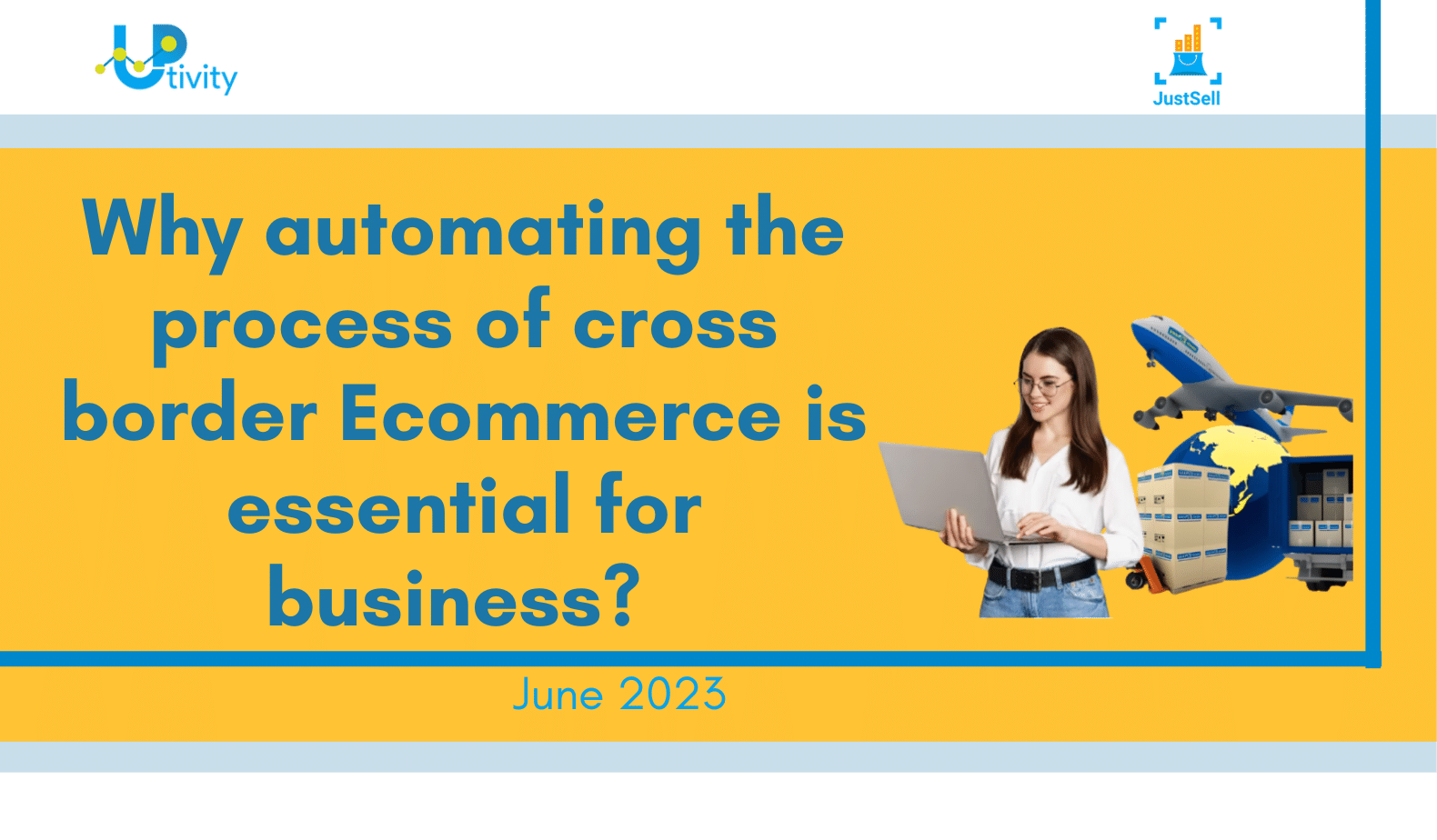Do you know in 2023 55% of supply chain professional that cross border ecommerce is difficult. Automating the process of cross-border Ecommerce allows for the benefits whilst also avoiding the challenges of international trade such as cross border legal issues. Automating this is essential for a business due to the following key reasons:
- Increased Efficiency: Cross-border Ecommerce involves complex processes, such as international shipping, customs clearance, and currency conversions. By automating these processes, businesses can significantly improve efficiency. Automated systems can handle tasks like order processing, shipping label generation, and documentation, reducing manual effort and saving time. This allows businesses to handle a higher volume of cross-border orders without compromising operational efficiency.
- Streamlined Operations: Automating cross-border Ecommerce processes helps streamline operations and reduce human errors. Manual tasks, such as data entry, order fulfilment, and inventory management, are prone to mistakes. By implementing automation, businesses can ensure accuracy and consistency in managing cross-border orders. This minimizes order discrepancies, shipping errors, and other operational issues, leading to a smoother and more reliable cross-border selling experience.
- Faster Order Fulfilment: Automating cross-border Ecommerce enables faster order fulfilment. Automated systems can handle order processing, inventory synchronization, and fulfilment updates in real time. This reduces the time between receiving an order and shipping it to the customer, resulting in quicker delivery and improved customer satisfaction. Faster order fulfilment also increases the likelihood of repeat purchases and positive reviews, enhancing the business’s reputation.
- Upgrade Customer Experience: Automating cross-border Ecommerce processes contributes to an enhanced customer experience. Customers expect a seamless and efficient buying journey, regardless of their location. Automated systems can provide accurate shipping quotes, real-time tracking information, and localized pricing and currency options. This improves transparency, reduces friction, and increases customer trust and satisfaction. Happy customers are more likely to become repeat buyers and recommend the business to others, driving revenue growth.
- Scalability and Expansion: Automated cross-border Ecommerce processes facilitate scalability and business expansion. As the business grows and starts selling to more countries, manual management of cross-border operations becomes increasingly challenging and time-consuming. Automation allows businesses to handle higher order volumes and expand their market reach without overwhelming their resources. It enables seamless integration with various marketplaces and platforms, enabling the business to scale efficiently and tap into new global markets.
- Compliance and Legal Requirements: Cross-border Ecommerce involves compliance with various international laws, regulations, and tax requirements. Automating these processes helps ensure compliance, reducing the risk of penalties and legal complications. Automated systems can calculate and apply accurate taxes, generate proper customs documentation, and manage regulatory requirements seamlessly. This protects the business from compliance-related issues and provides a smooth cross-border selling experience for both the business and the customers.
- Data-driven Insights: Automated cross-border Ecommerce systems generate valuable data and insights. Businesses can analyse this data to understand customer behaviour, market trends, and sales performance in different regions. Data-driven insights enable businesses to make informed decisions, optimise their cross-border strategies, and identify growth opportunities. This helps businesses stay competitive, improve their offerings, and effectively target international markets.
In conclusion, automating the process of cross-border Ecommerce is essential for businesses to improve efficiency, streamline operations, upgrade the customer experience, enable scalability and expansion, ensure compliance, and leverage data-driven insights. This allows for cross border ecommerce growth and by embracing automation, businesses can unlock the full potential of cross-border selling and capitalize on the opportunities presented by the global market.
See how JustSell can help your business, schedule a demo today to see it in action!


